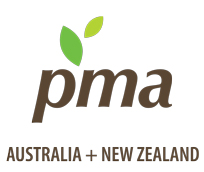
There has been a change to the requirements for regional businesses in relation to COVID Safe Plans.
For businesses (excluding abattoirs, meat, seafood and poultry processors) operating in regional Victoria a COVID Safe Plan is now advised, but not mandatory.
For permitted businesses operating in metro-Melbourne, a COVID Safe Plan remains mandatory.
We are still awaiting clarity on the definition of warehousing and cold storage and having a High Risk COVID Safe Plan place as it relates to agricultural industries.
This change is documented in the updated Workplace Directions (No 2). This Directions notice also details obligations on employers. All Directions notices are available here (scroll to the bottom of the page).
More information on COVID Safe Plans is available via Business Victoria
**Please understand that the information is changing on a daily basis and we will try to keep our members informed of all updates.
![]()
ACCC’s Murray-Darling Basin inquiry interim report
The ACCC’s Murray-Darling Basin water markets inquiry interim report has today been released and can be accessed on the ACCC website at https://www.accc.gov.au/focus-areas/inquiries-ongoing/murray-darling-basin-water-markets-inquiry/interim-report
The interim report discusses a range of issues identified throughout the inquiry and sets out potential options for improving the operation of Murray-Darling Basin water markets. The ACCC welcomes your feedback in response to the interim report. Further information about making submissions can be accessed at https://www.accc.gov.au/focus-areas/inquiries-ongoing/murray-darling-basin-water-markets-inquiry/interim-report. The ACCC requests submissions by 28 August 2020.
To register your interest and to discuss the program further please register here https://agriculture.vic.gov.au/farm-management/emergency-management/coronavirus-covid-19/agriculture-
As you are aware, from 11.59 pm on Sunday 2 August, all Victorians are now required to wear a face mask covering when leaving their home, unless they have a lawful reason for not doing so. Employers must take reasonable steps to ensure that workers wear a face covering at all times when working in their business.
Premier Daniel Andrews has clarified when masks need to be worn for those who live on farms. The premier called for a common-sense approach, and gave a number of situational examples of when a mask is required.
Essentially:
“If it’s a family farm and you and members of your household, then common sense tells you that you don’t need to wear a mask,” Mr Andrews said. “But once you go past the front gate and go into town … you would (need to wear a mask). “If you’ve got staff or if you’ve got people coming to your property to make deliveries or to collect livestock for instance … or if you have staff coming onto your property … logic just says put your mask on because that person is not part of your household. Even though the farm is your home, that’s then a workplace.”
More information about using and managing face coverings in workplaces in areas under Stage 3 Restrictions, to reduce the risk of exposure to coronavirus (COVID-19) can be found on the Worksafe website- https://www.worksafe.vic.gov.au/managing-coronavirus-covid-19-risks-face-coverings-workplaces
Coronavirus (COVID-19) Test Isolation and Worker Support Payments
The Department of Health and Human Services is providing a one-off $1,500 payment designed to financially support Victorian workers who, as of 20 June, have been instructed by the department to self-isolate or quarantine at home because they are either diagnosed with coronavirus (COVID-19) or are a close contact of a confirmed case. The COVID-19 worker support payment recognises that the requirement to self-isolate or quarantine at home can cause a financial burden for some individuals and families who are without incomes during this period. Providing financial support can help alleviate this burden, making it easier for people to comply with the direction to stay at home. Visit the Department of Health and Human Services website for more information...
Government going door to door
From July 29, employers are required to notify WorkSafe immediately if they become aware that a worker has received a confirmed coronavirus diagnosis. This also applies to people who are self-employed to contractors. These Regulations will be in place for 12 months to hopefully reduce the spread of coronavirus in the workplace. For more information visit the DHHS website.
COVID Safe Workplan
All businesses in stage 4 are to have a Covid safe workplan in place with the new restrictions, it is a suggestion for stage 3 but still encouraged, please see here : https://www.business.vic.gov.au/disputes-disasters-and-succession-planning/covid-safe-business/creating-a-covid-safe-workplace. A Directions Notice will be put out shortly by the Deputy chief health officer which will provide specifics of what we need to follow
Resources
© Summerfruit Export Development Alliance